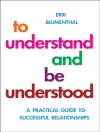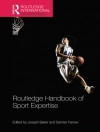`This book stands out for a number of reasons…the result is an authoritative, provocative and challenging collection, which will doubtless help to stimulate further debate in the field′
Susan Condor, Department of Psychology, Lancaster University
`The authors are to be commended for assembling an unusually stimulating collection of chapters…the book is clearly distinguished by the breadth of its coverage and the theoretical insights it offers. It is a valuable addition to any collection on this topic′ Jack Dovidio, Department of Psychology, Colgate University
`This is a comprehensive text that is extremely well written by top social psychologists, with all of the major theoretical perspectives represented. The editors should be commended for putting together this lively and engaging text′ Nyla Branscombe, Department of Psychology, University of Kansas
A range of international events have recently focused attention on issues of prejudice, racism and social conflict: increasing tensions in former Eastern bloc countries, political conflict in Northern Ireland and the United States, as well as racial conflict in the Baltic States, Middle East, Africa, and Australasia. In light of these events, Understanding Prejudice, Racism and Social Conflict presents a timely and important update to the literature, and makes a fascinating textbook for all students who need to study the subject.
A variety of theoretical and conceptual approaches are necessary to fully understand the themes of prejudice and racism. This textbook successfully presents these, uniquely, by examining how these themes manifest themselves at different levels – at the individual, interpersonal, intergroup and institutional levels. It aims to integrate the different approaches to understanding racism and prejudice and to suggest new ways to study these complex issues. This integrated, international focus should make it key reading for students in many countries.
With contributions from world-leading figures, Understanding Prejudice, Racism and Social Conflict should prove to be an invaluable teaching resource, and an accessible volume for students in social psychology, as well as some neighbouring disciplines.
विषयसूची
PART ONE: PREJUDICE AND RACISM: DEFINING THE PROBLEM `KNOWING′ THE EXPERIENCE
Prejudice, Racism and Social Psychology – Martha Augoustinos and Katherine J Reynolds
The Changing Nature of Racism – Iain Walker
From Old to New?
Boongs, Bigots, and Bystanders – Darren Garvey
Indigenous and Non-Indigenous Experiences of Racism and Prejudice and their Implications for Psychology in Australia
PART TWO: DEVELOPMENT, SOCIALIZATION AND PERSONALITY
Development of Prejudice in Children – Drew Nesdale
The Socialization of Tolerance – Julie Robinson, Rivka Witenberg and Ann Sanson
Prejudice and Personality – Patrick C L Heaven
The Case of the Authoritarian and Social Dominator
PART THREE: SOCIAL COGNITION, MOOD AND ATTITUDES
Stereotyping and Prejudice – Vance Locke and Lucy Johnston
A Cognitive Approach
Affect, Prejudice, and Discrimination – Leith S Baird and Julie M Duck
In the Politics of `Gut-Feeling′, Feeling Better is What Counts
Prejudiced Attitudes, Group Norms, and Discriminatory Behaviour – Deborah J Terry, Michael A Hogg and Leda Blackwood
PART FOUR: PREJUDICE AND GROUP LIFE
Prejudice as a Group Process – Katherine J Reynolds and John C Turner
The Role of Social Identity
Distortion V. Meaning – Penelope J Oakes and S Alexander Haslam
Categorization on Trial for Inciting Intergroup Hatred
Realistic Intergroup Conflict – Michael J Platow and John A Hunter
Prejudice, Power, and Protest
PART FIVE: THE LANGUAGE AND RHETORIC OF RACISM
The Language of Prejudice and Racism – Amanda Le Couteur and Martha Augoustinos
`How to Do X without Doing Y′ – Mark Rapley
Accomplishing Discrimination without `Being Racist′ – `Doing Equity′
PART SIX: FUTURE DIRECTIONS
Reducing Prejudice – John Duckitt
An Historical and Multi-Level Approach
Studying Psychology, Studying Racism – Stephen Reicher
लेखक के बारे में
At the ANU I am a member of a team of social psychology researchers. My expertise is in investigating the role of the social self or social identity (sense of self as a group member – ‘we’, ‘us’) in shaping people′s attitudes, affect and behaviour. Over recent years the focus of my work has been theory-driven research on (a) core organizational topics including leadership, power, diversity, casualization, negotiation and organisational change, (b) understanding the dynamics of social change (intergroup conflict and co-operation, prejudice, stereotyping, discrimination), and (c) the interplay between social identity processes and individual-level functioning (e.g., well-being, performance, personality). A particular strength of this work has been investigating these processes using more naturalistic samples in ACT high schools, community groups, and organisational settings. The research is of interest to a range of policy makers in areas such as educational leadership and school improvement, social norm change in dysfunctional communities, and building social cohesion in the face of ethnic and religious diversity.
My research has been published in numerous top-tiered journals including Journal of Personality and Social Psychology, Personality and Social Psychology Bulletin, Journal of Experimental Social Psychology, and European Journal of Social Psychology. It also is supported by numerous large grants from the Australian Research Council (ARC) and I am currently Chief Investigator on three large ARC grants.
In relation to other professional activities I am currently an Associate Editor of the Personality and Social Psychology Bulletin, a member of the Governing Council of the International Society of Political Psychology and serve and on numerous other editorial boards (ERSP, BJSP, PP, JASP).
My main teaching responsibilities are in the areas of social psychology and organizational psychology. I currently supervise Master and Ph D student research projects on understanding personality stability and change, leadership, prejudice reduction, organisational/team functioning, the creation of prejudice through scapegoating, and the formation of social identity.












